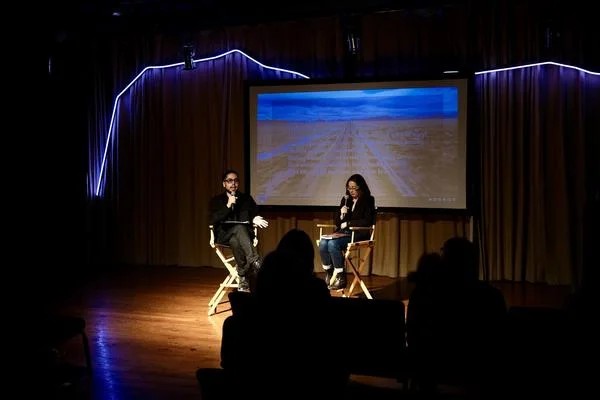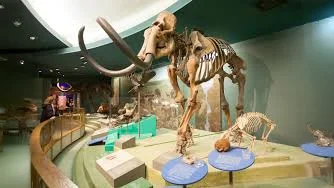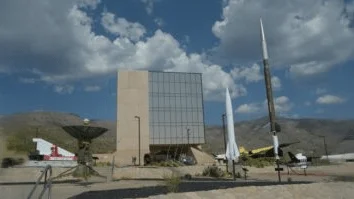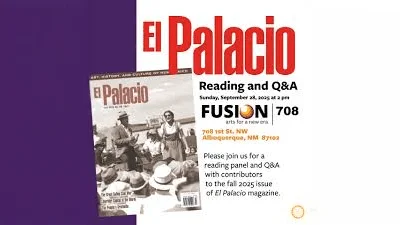In one hand I have the article A Movable Peace—from the newspaper Pasatiempo—extoling the joy of riding Sky Railway, a train venture partially funded by George R.R. Martin, author of Game of Thrones. In the other hand, I have poet Paisley Rekdal’s masterful work, West: A Translation.
Both discuss trains, but from two different perspectives.
The Movable Peace highlights the entertainment trains elicit, whereas Rekdal’s book provides an historical look at how trains altered the Western landscape, giving voice to many people underrepresented in the production of the railway system.
At a recent presentation held at Fusion Theater in Albuquerque, an event sponsored by 516 Arts, Rekdal gave a summary of her installation for the exhibit The Other Side of the Tracks, showing videos and reading from her work.

Paisley Rekdal reading. Photo by Cailan T. Nixon
An award-winning author and professor at the University of Utah, Rekdal began her discussion by giving the audience a couple introductory remarks.
First, as Utah Poet-Laureate, Rekdal was “commissioned to write a poem about the transcontinental railroads completion for its 150th anniversary.” But upon investigating the railroad, she was surprised by the lack of material available to her from non-Anglo people that worked on the railroad.
Second, as a woman of Chinese descent, Rekdal was unable to locate any manuscripts related to the thousands of Chinese labors, “Not a single document has been found or recovered by a Chinese worker,” she affirms. So, Rekdal turns to poems carved into wood at Angel Island, the “immigration station” near San Francisco. Rekdal states that “Chinese workers coming in [to the US] turned to writing poetry,” carving them onto the walls.
Rekdal incorporated the Chinese poems (the suicide of a worker, as an example)—and other historical documents—to craft a tome on the construction of the Transcontinental Railroad. West: A Translation was longlisted for a National Book Award.
After video representations of poems, Rekdal read some of her “lyrical essays,” tying the pomes content to its historical context.

Q&A with Paisley Rekdal and J.C. González. Photo by Cailan T. Nixon
One such poem was Sorrowful News, describing the scene as President Abraham Lincon’s body travelled—via railroad—through the US as “dark news rang.” In her lyrical essay, Rekdal reports that Lincoln’s body “travelled through 180 cities and 7 states,” accompanied by his dead son, Willie— “who’d died in 1862 at the age 11 from typhoid fever.” “Death is an invitation to return,” Rekdal notes.
After getting input from the audience on the topics they’d like to hear, Rekdal recites Face, a poem influenced by Andrew J. Russell, the official photographer for the Union Pacific. Then, like a moving locomotive, Rekdal continues her artistic journey, taking us on a literary trip.
Coincidentally, Fusion Theater sits adjacent to the railroad tracks. During one reading, we hear the train roll by, its lonesome horn and steel wheels resonate, giving us an audible picture of the many voiceless people that helped build its beautiful—but brutal—frame.
To learn more about Rekdal’s book, visit Copper Canyon Press: https://www.coppercanyonpress.org/authors/paisley-rekdal/
To learn more about The Other Side of the Tracks exhibit, visit https://www.516arts.org/exhibitions/the-other-side-of-the-tracks
Brian C. Nixon, Ph.D., is Chief Academic Officer and professor at Veritas International University in Albuquerque. As a writer, musician, and artist, his interests surround the philosophical transcendentals: truth, beauty, and goodness. You can contact Brian via his Bandcamp email address: https://briancharlesnixon.bandcamp.com









